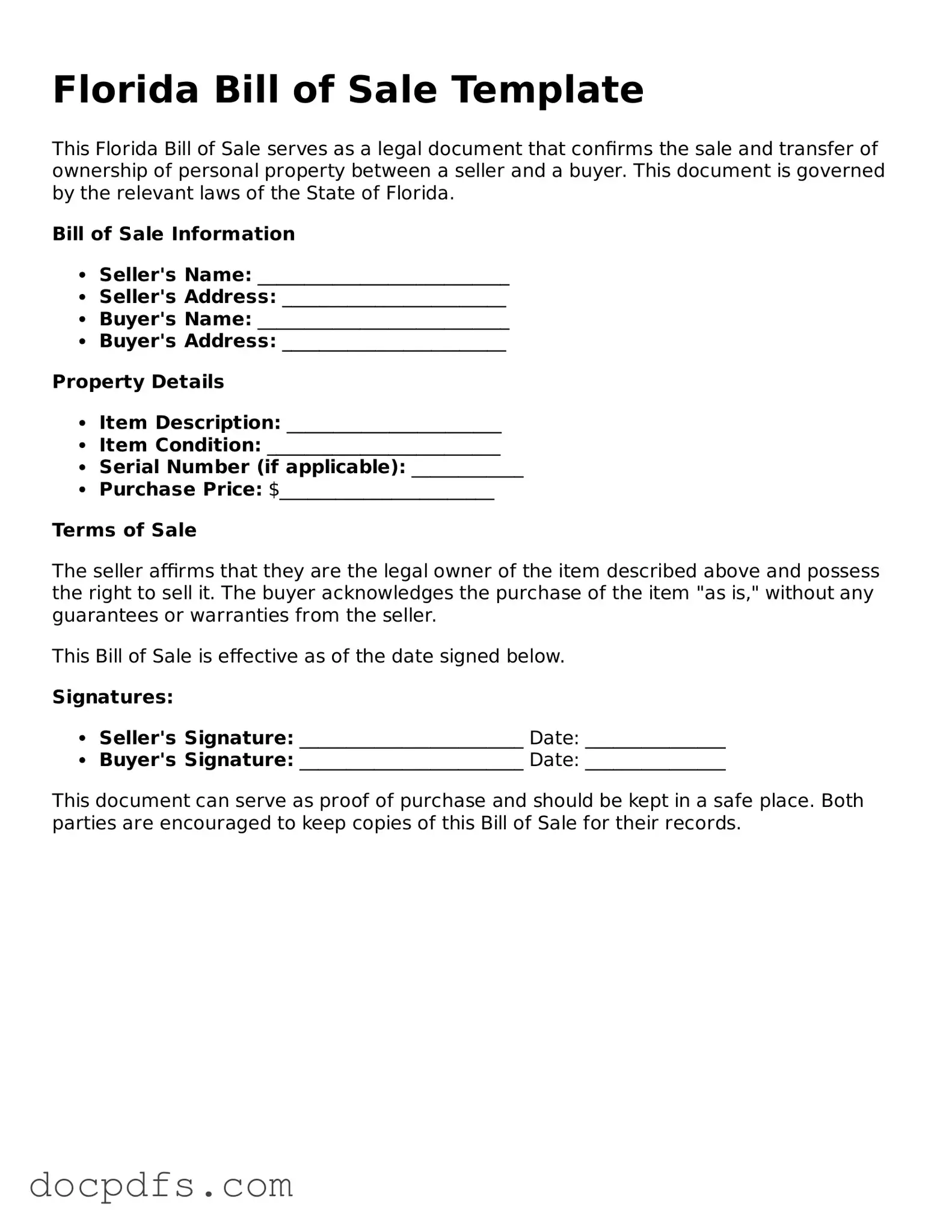Free Florida Bill of Sale Form
A Florida Bill of Sale form is a legal document that records the transfer of ownership of personal property from one party to another. This form provides essential details about the transaction, including the identities of the buyer and seller, a description of the item, and the sale price. Using this document can help protect both parties by providing proof of the sale.
Open Bill of Sale Editor Now

Free Florida Bill of Sale Form
Open Bill of Sale Editor Now

Open Bill of Sale Editor Now
or
⇓ Bill of Sale
Finish this form the fast way
Complete Bill of Sale online with a smooth editing experience.